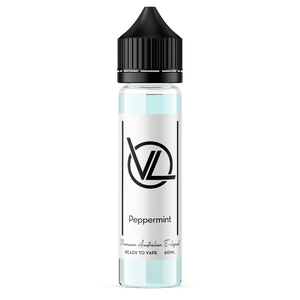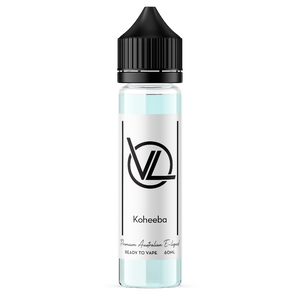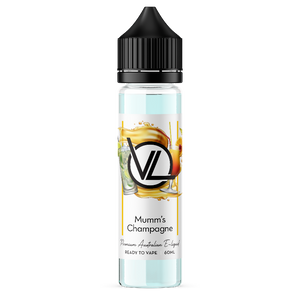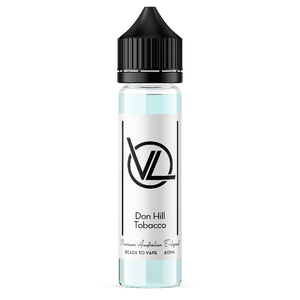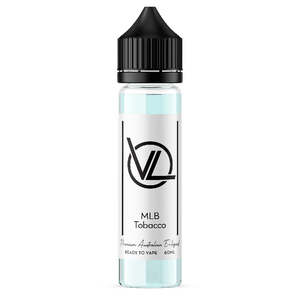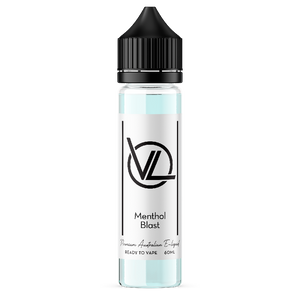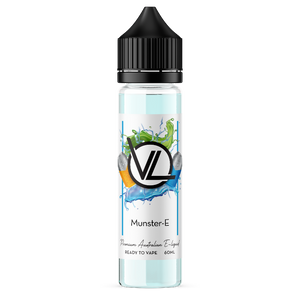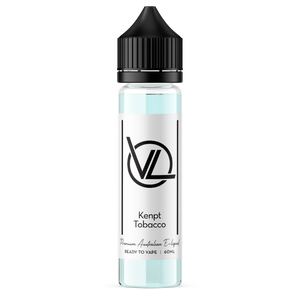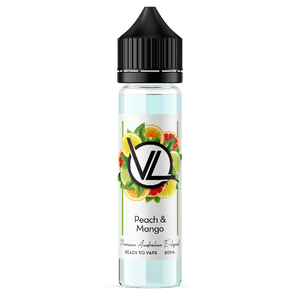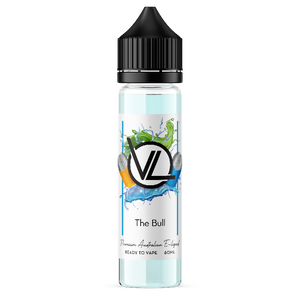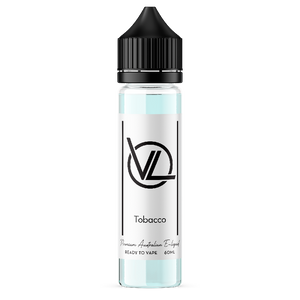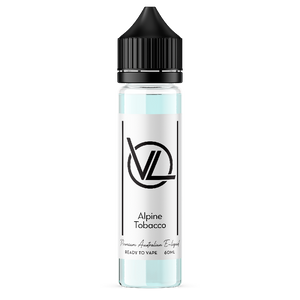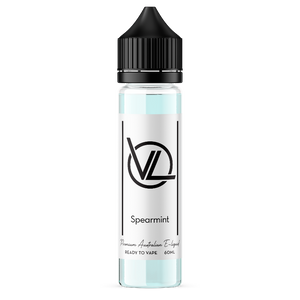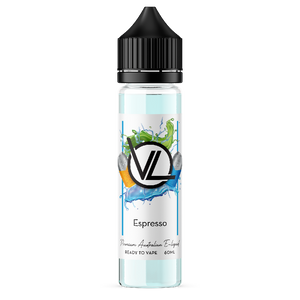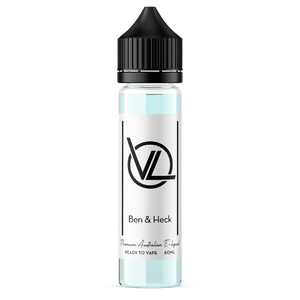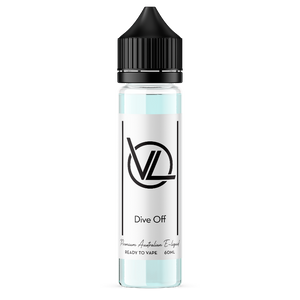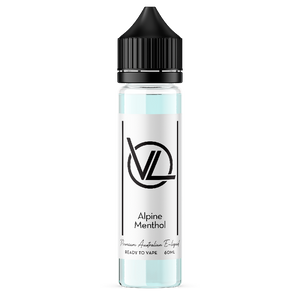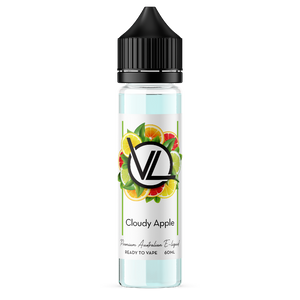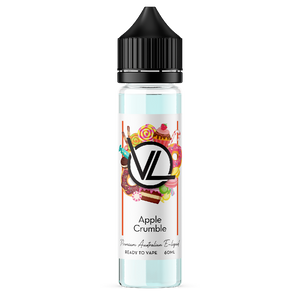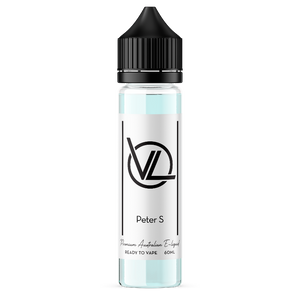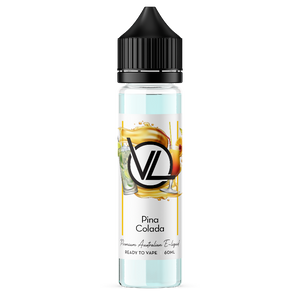Is Vaping Bad For You: Find out The Truth About Effects of Vaping
Feb 04, 2022
Is vaping bad for you is what we call a bit of a loaded question. It’s a complex question that carries the presupposition that people who vape are doing so under the belief that it carries no adverse health effects whatsoever.
The truth is that vaping does carry some health risks. However, so do a lot of things that people use in their day-to-day life. Our goal with this article isn’t to lie to you and say that vaping is perfectly healthy. However, what we do want to do is offer some perspective by comparing the health risks associated with multiple substances.
But first, what is vaping?
Vaping is the act of heating up e-liquid using a vapouriser (or e-cigarette), and then inhaling the ensuing vapour. Vape juice consists of two main components - Propylene Glycol (PG) which thins out the consistency of the vapour and Vegetable Glycerin (VG) which thickens the consistency of the vapour. The texture of the e-liquid is determined by the different concentrations of PG and VG.
So is vaping bad for you? Well, the health effects of vaping are not entirely known, due to vaping being a recently new phenomenon. As a result, vape is regulated similarly to tobacco, despite them both being very different and having subsequently different health effects.
The Health Effects Associated With…
Alcohol
Alcohol is the most widely used social drug in Australia, with alcoholic beverages widely available for purchase (although it is illegal to sell or serve alcohol to people under 18 years of age).
Alcohol is a depressant drug that affects people in different ways depending on multiple factors such as age and gender by slowing down the messages travelling between the brain and the body.
Excessive alcohol consumption increases the risk of:
- Bowel, breast, throat and mouth cancer
- Liver disease
- Cardiovascular disease
- Mental health conditions
- Injuries
- Alcohol poisoning
- Gastrointestinal inflammation
- Endocrine system effects such as a decrease in fertility and libido
- Problems associated with weight gain such as diabetes
- Malnutrition
Consuming large amounts of alcohol in a short period of time results in:
- Confusion
- Blurred vision
- Poor muscle control
- Nausea and vomiting
- Fatigue
- Impaired judgement
So, not only does alcohol carry negative effects on the body, it also increases the likelihood that the user will put themselves in dangerous situations.
Caffeine
Caffeine is a stimulant that increases the activity of your brain and nervous system. It is extremely common, being found in coffee, tea, soft drinks, energy drinks and chocolate. Like alcohol, its effects depend on bodily factors such as your body mass, health and metabolism.
Many ingest caffeine in order to increase concentration and reduce fatigue. However, excess consumption of caffeine leads to:
- Increased body temperature
- Frequent urination
- Dehydration
- Dizziness and headaches
- Heart palpitations
- Anxiety symptoms
- Trembling hands
- Insomnia
- Increased fatigue after an initial high
- The possibility of withdrawal symptoms once you cease consumption
Cannabis
Cannabis (or Marijuana) is an illegal drug that has nonetheless seen circulation around Australia. It is the most commonly used illegal drug, and it can be smoked or eaten in a variety of forms. The chemical in cannabis that induces the high is known as THC (or delta-9 tetrahydrocannabinol), a psychoactive substance that travels in the bloodstream to the brain.
Immediate effects of cannabis include:
- A feeling of relaxation
- Loss of inhibition
- Reduced concentration and memory
- Distorted perceptions of time, space and distance
- Increase heart rate
- Drowsiness
- Increased appetite
- Reddened eyes
- Reduced coordination
- Anxiety and paranoia
Effects of larger doses of cannabis are more severe, such as:
- Confusion
- Restlessness
- Feelings of excitement
- Hallucinations
- Anxiety or panic
- Detachment from reality
- Nausea
- Psychosis
Smoking
A lit flame is used to heat up a processed plant extract, and the resulting smoke is inhaled afterward. As a smoker, you have access to a variety of smoking paraphernalia including cigarettes (which come pre-rolled or can be rolled yourself using rolling paper), cigars, pipes, etc. The most common plant used to smoke is tobacco, which is a highly addictive plant due to its high nicotine content.
Tobacco has extreme health effects, containing over 70 known carcinogens that harm nearly every organ in the body. Smokers ingest chemicals such as tar, carbon monoxide, oxidisers, metals and radioactive compounds.
Smoking has the following effects:
- Impairment of the respiratory system
- Laryngeal and tracheal irritation
- Reduced lung function and breathlessness due to swelling and narrowing of airways and accumulation of mucus in the lungs
- Inflammation and damage to the lungs caused by the obstruction of the lungs' clearance system, which results in the buildup of poisonous substances
- A higher risk of lung infections and symptoms like coughing and wheezing
-
Permanent damage to the air sacs of the lungs
- Damage to the circulatory system
- Hypertension and increased heart rate
- A decrease in skin temperature is caused by the constricting (tightening) of skin blood vessels
- A decrease in the amount of oxygen carried through the blood during exercise
- ‘stickier’ blood, which is more prone to clotting
- An atherosclerosis-related condition, in which fat deposits build up on the walls of the arteries due to damage to their lining
- Reduced blood flow to the extremities (fingers and toes)
-
Increasing risk of strokes and heart attacks due to obstructions in circulation
- Weakening of the immune system
- Increased susceptibility to infections such as pneumonia and influenza
- Illnesses that last longer and are more severe
-
Reduced levels of protective antioxidants in the blood (such as vitamin C)
- Deterioration of sexual health
- For the male body
- lower sperm count
- higher percentage of deformed sperm
- genetic damage to sperm
- impotence, which may be due to the effects of smoking on blood flow and damage to the blood vessels of the penis
- For the female body
- reduced fertility, menstrual cycle irregularities, or absence of menstruation
- menopause reached one or two years earlier
- increased risk of cancer of the cervix
-
greatly increased risk of stroke and heart attack if the person who smokes is aged over 35 years and taking the oral contraceptive pill
- Miscellaneous effects
- irritation and inflammation of the stomach and intestines
- increased risk of painful ulcers along the digestive tract
- reduced ability to smell and taste
- premature wrinkling of the skin
- higher risk of blindness
-
gum disease (periodontitis).
- A greater risk of:
- cancer of the lung, mouth, nose, larynx, tongue, nasal sinus, oesophagus, throat, pancreas, bone marrow (myeloid leukaemia), kidney, cervix, ovary, ureter, liver, bladder, bowel and stomach
- lung diseases such as chronic bronchitis and chronic obstructive pulmonary disease, which includes obstructive bronchiolitis and emphysema
- heart disease and stroke
- ulcers of the digestive system
- osteoporosis and hip fracture
- poor blood circulation in feet and hands, which can lead to pain and, in severe cases, gangrene and amputation
- type 2 diabetes
- rheumatoid arthritis
And that’s not even discussing the effects of second-hand smoke. Adverse health effects are incurred by both the smoker and anybody around them that inhales their smoke.
Salt
Salt is a chemical compound made from sodium and chloride. It is used to both preserve and flavour savoury foods, and is the main source of sodium in our diet.
The National Health and Medical Research Council (NHMRC) advises that Australian adults should aim to consume no more than one teaspoon (5 grams) of salt a day (or 2,000mg of sodium a day) in order to prevent chronic disease.
However, excessive salt consumption can lead to health conditions such as:
- Heart failure
- Kidney problems and kidney stones
- Oedema (fluid retention)
- Stroke
- Stomach cancer
- Left ventricular hypertrophy (thickening of heart muscle)
- Osteoporosis
- High Blood Pressure
Sugar
Sugar is a form of carbohydrate that the body converts into glucose. Small amounts of sugars, particularly naturally occurring sugars (i.e. the type found in fruits) are okay for one’s diet.
However, excessive sugar consumption can potentially lead to or exacerbate a number of conditions such as:
- Abdominal obesity
- Type 2 diabetes
- High cholesterol
- Hypertension (high blood pressure)
- Heart disease
- Tooth decay
So, let’s put it into perspective
One of the main uses for vaping is that it is an alternative to smoking. Now, both vaping and smoking carry some form of health risk. However, vaping is a lot less harmful. According to available data, vaping is approximately 95% less harmful than smoking tobacco.
Several factors contribute to this, including;
- Low concentration of harmful chemicals in vaping, which is less than 1% of what is in cigarettes
- Significantly lower levels of carcinogens found in the biomarkers (blood, saliva, and urine) of vapers compared to smokers
- Reduced risk of conditions like heart attacks, high blood pressure, asthma and emphysema
- It is estimated that the cancer risk from vaping is less than 0.5% the risk from smoking
You take a health risk when you vape, the same way you take a risk when you:
- Drink alcohol
- Drink caffeinated beverages
- Ingest cannabis
- Smoke tobacco
- Eat sugar-or-salt rich foods in your diet





